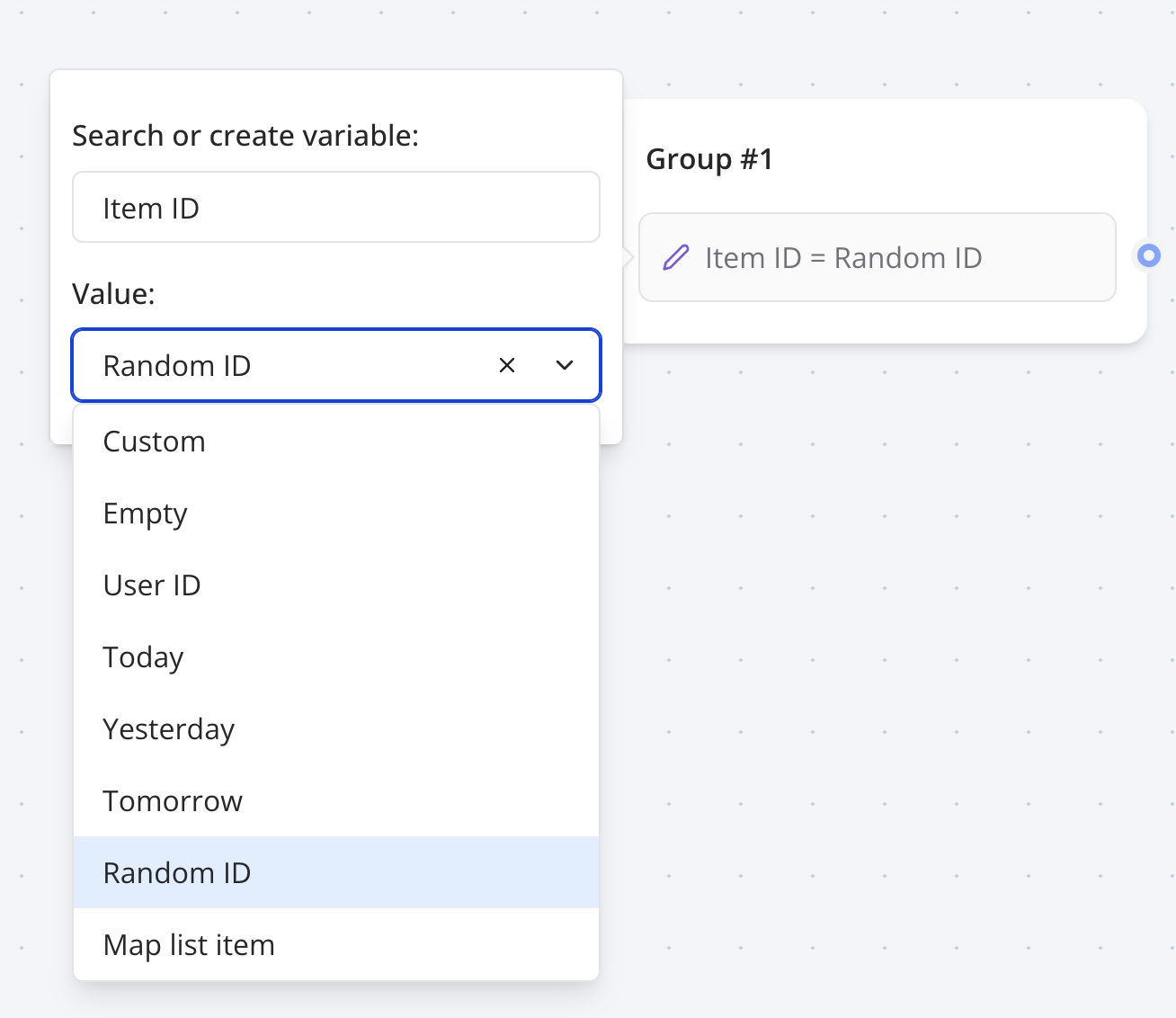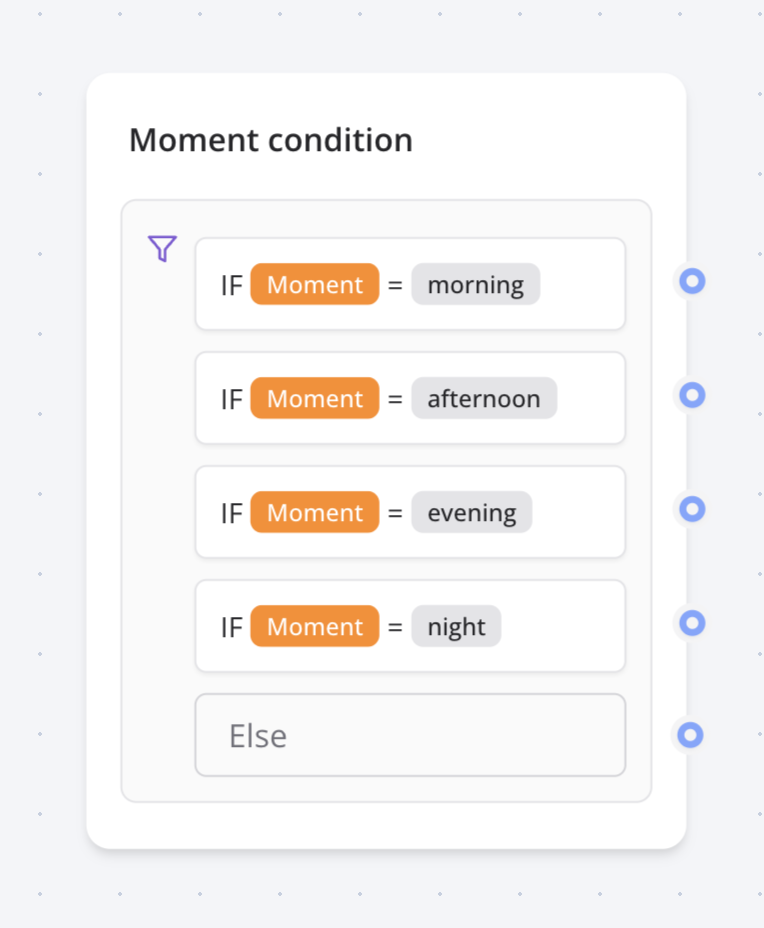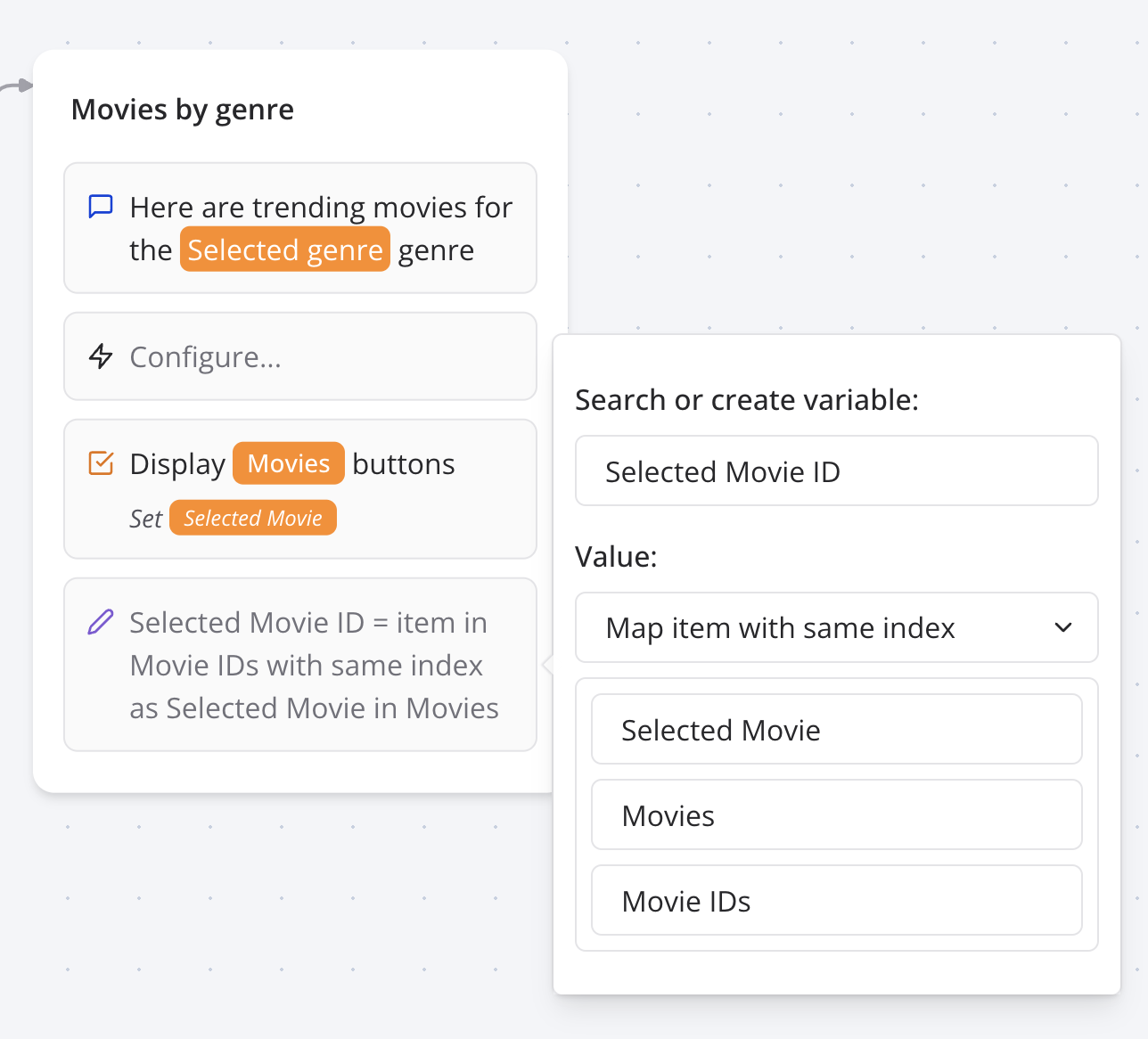
Custom
You can set your variable with any value withCustom. It can be any kind of plain text but also Javascript code.
Expressions with existing variables
It means you can apply operations on existing variables. Add a value to your variable:return keyword then it will be automatically prepended to the beginning of your code.
Variables in script are not parsed, they are evaluated. So it should be treated as if it were real Javascript variables.So, if you write
"{{My variable}}", it will parse the variable ID (something like vclfqgqkdf000008mh3r6xakty). You need to remove the double quotes to properly get the variable content value.For example,- ❌
"{{URL base}}/path"=>vclfqgqkdf000008mh3r6xakty/path - ✅
{{URL base}} + '/path'=>https://domain.com/path - ✅
`${{{URL base}}}/path`=>https://domain.com/path
Variables content can either be a string or a list of strings. Check out
Valid value types for more information.
Result ID
This will set your variable with the current result ID. The result ID is the ID that corresponds to a row of your Results table. It can be considered like a User ID for the currently chatting user.Moment of the day
It will set your variable with either one of these values based on the user’s time of the day:morning, afternoon, evening, night.
Then you can use this variable to conditionally display content:

Map item with same index
This is a convenient value block that allows you to easily get an item from a list that has the same index as an item from another list. When you are pulling data from another service, sometimes, you will have 2 lists:Labels and Ids. Labels are the data displayed to the user and Ids are the data used for other requests to that external service.
This value block allows you to find the Id from Ids with the same index as Label in Labels


